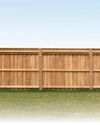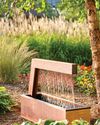I’ve filled thousands of stud spaces with fiberglass batts over the years. So when I think insulation, I think fiberglass. But I recently tried a different type of insulation called “mineral wool.” Mineral wool has been around for decades, is widely used in Canada and Europe and is making a comeback in the United States. It’s made by melting down basalt stone and recycled slag from steel mills, then spinning it into fibre that can be formed into batts or boards. I did some research, talked to installers and filled a few walls with the stuff. Here’s my verdict: Mineral wool has some real advantages over the alternatives. If you have an insulation job coming up, I strongly recommend that you check it out.

THE PROS AND CONS
R-value
Mineral wool batts are slightly better insulators than the off-the self fiberglass batts sold at most lumberyards and home centers. Mineral wool batts for 2x4 walls have an R-value of 15, while a standard fiberglass batt made to fit in a 2x4 wall has an R-value of 11 or 13. However, you can special-order R-15 high-density fiberglass batts. (The larger the R-value, the better insulator the material is.)
Mineral wool batts for 2x6 walls have an R-value of 23, compared with R-19 for fiberglass batts. A 2x4 stud cavity filled with blown-in cellulose has an R-value of about 13. Spray foam insulates better than all of these, but it’s far more expensive.
Installation
Denne historien er fra September 2016-utgaven av The Family Handyman.
Start din 7-dagers gratis prøveperiode på Magzter GOLD for å få tilgang til tusenvis av utvalgte premiumhistorier og 9000+ magasiner og aviser.
Allerede abonnent ? Logg på
Denne historien er fra September 2016-utgaven av The Family Handyman.
Start din 7-dagers gratis prøveperiode på Magzter GOLD for å få tilgang til tusenvis av utvalgte premiumhistorier og 9000+ magasiner og aviser.
Allerede abonnent? Logg på

7 Bicycle Maintenance Tips
Keep your bike in tiptop shape and ride safe!

SETTING FENCE POSTS WITH EXPANDING FOAM
Any fence builder knows you need strong posts for a strong fence, and that means backfilling the postholes with a dense, hard material other than dirt.

PEBBLE MOSAIC STEPPING STONES
COLLECT SOME RIVER ROCK AND MAKE YOUR OWN UNIQUE STEPPINGSTONE PATH

EARTH-FRIENDLY WEED KILLERS
HEALTHIER CHOICES FOR HUMANS AND THE ENVIRONMENT

DIY! HYDROPONIC GARDEN
FRESH VEGETABLES AT YOUR FINGERTIPS

GROW MINI VEGETABLES
GROW A GARDEN IN A TINY SPACE!

BUILD A VERTICAL GARDEN
TIME TO GROW UP!

MODERN WATER FOUNTAINS
A SPLASH OF PEACE FOR YOUR PATIO

9 ALTERNATIVE USES FOR SAWDUST
Every fully stocked wood shop has a table saw. You can usually find a pile of sawdust under it, even if it's used only occasionally. If a shop has a belt sander or band saw, there's probably another pile of finer sawdust under that. Even people without stationary tools have sawdust accumulation on their workbenches.

INSULATE WITH FOAM
IT'S A GREAT ALTERNATIVE TO FIBERGLASS